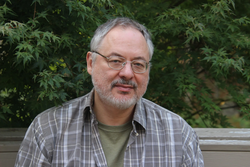Peter Turchin Quote
Two very clear indicators are the appearance of lavishly furnished burials and large, elaborate private residences. Skeletons can tell us that one segment of population ate much higher-quality foods and enjoyed better health than the rest. Based on such indicators, we know that large differentials between the rich and powerful few and the rest arose within a few thousand years of agriculture in Mesopotamia, Egypt, China, Mexico, and the Andes. Somehow a segment of society succeeded in manipulating itself into a position of superiority in these regions; this is a fact accepted by all archaeologists.
Peter Turchin
Two very clear indicators are the appearance of lavishly furnished burials and large, elaborate private residences. Skeletons can tell us that one segment of population ate much higher-quality foods and enjoyed better health than the rest. Based on such indicators, we know that large differentials between the rich and powerful few and the rest arose within a few thousand years of agriculture in Mesopotamia, Egypt, China, Mexico, and the Andes. Somehow a segment of society succeeded in manipulating itself into a position of superiority in these regions; this is a fact accepted by all archaeologists.
Related Quotes
For everything in this journey of life we are on, there is a right wing and a left wing: for the wing of love there is anger; for the wing of destiny there is fear; for the wing of pain there is heali...
C. JoyBell C.
Tags:
ancient, flight, flying, human race, humanity, imperfection, inspirational, inspirational life, inspiring, journey
People accuse me of falling in love easily. It just means that I'm able to see the beauty in most of the people who cross paths with me and I appreciate it for what it is and also for what it isn't. L...
Ashly Lorenzana
Tags:
beauty, falling in love, flaws, imperfection, loneliness, love, passion, people, souls, strength
About Peter Turchin
Peter Valentinovich Turchin (; born 22 May 1957) is a Russian-American complexity scientist, specializing in an area of study he and his colleagues developed called cliodynamics—mathematical modeling and statistical analysis of the dynamics of historical societies.
Turchin is an emeritus professor at the University of Connecticut in the departments of ecology and evolutionary biology, anthropology, and mathematics. He is a project leader at the Complexity Science Hub Vienna and a research associate at the School of Anthropology of the University of Oxford.
He was editor-in-chief and remains a member of the editorial board at Cliodynamics: The Journal of Quantitative History and Cultural Evolution. Turchin is a founding director of the Seshat: Global History Databank. He was a director of the Evolution Institute. In 2021, he was elected a fellow of the American Association for the Advancement of Science.
Turchin is an emeritus professor at the University of Connecticut in the departments of ecology and evolutionary biology, anthropology, and mathematics. He is a project leader at the Complexity Science Hub Vienna and a research associate at the School of Anthropology of the University of Oxford.
He was editor-in-chief and remains a member of the editorial board at Cliodynamics: The Journal of Quantitative History and Cultural Evolution. Turchin is a founding director of the Seshat: Global History Databank. He was a director of the Evolution Institute. In 2021, he was elected a fellow of the American Association for the Advancement of Science.
